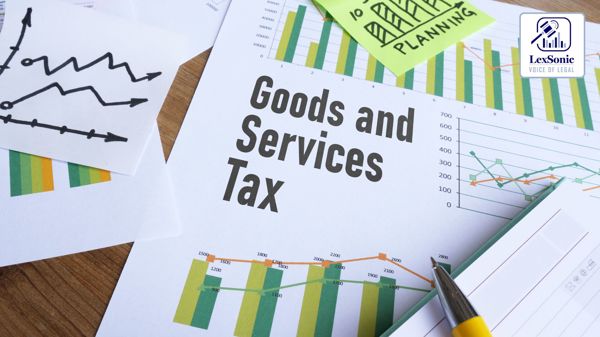A major concern under the Central Goods and Services Tax Act, 2017 (CGST Act) was recently decided by the Supreme Court: can revenue authorities issue a second provisional attachment order after the first one expires by operation of law? The Court's decision, which was rendered in response to an appeal against an order from the Gujarat High Court, emphasizes the necessity of protecting taxpayer rights from capricious executive action and reinforces the stringent statutory restrictions on the use of this extraordinary power.
Background of the Case:
The appellant had contested two temporary attachment orders issued by the GST authorities on November 13, 2024, and December 18, 2024, which were allegedly "renewals" of previous attachment orders from October 2023.
Under Section 83(2) of the CGST Act, a provisional attachment order automatically ceases to be effective after one year. The appellant contended that as the Act does not provide for renewal or re-issuance, the new orders lacked jurisdiction after the statutory period ended (in October 2024). However, the Gujarat High Court maintained the authorities' course of action, arguing that the law did not specifically forbid making further directives.
The appellant challenged this opinion and took the case all the way to the Supreme Court.
Arguments of the Appellant:
The appellant's attorney submitted:
Lawful Expiration: It is evident from Section 83(2) that temporary attachments inevitably end after a year. Other tax laws, such as the Excise Act and Customs Act, provide provisions for renewal or extension; however, the CGST Act does not contain any such provisions.
Lack of Jurisdiction: The respondent had no authority to re-attach assets under the pretext of "renewal" after they had expired. Parliament purposefully avoided including an extension clause in the GST, as evidenced by comparisons with the Central Excise Act, 1944 (Section 11DDA) and the Customs Act, 1962 (Section 28BA). A procedural lapse occurred when the authorities issued new attachment orders without first addressing concerns submitted under Rule 159(5) of the CGST Rules.
Conflicting Judicial Views: The Kerala High Court (Ali K. v. ADG, 2025) ruled against such renewal of attachments, unlike Gujarat High Court. The appellant urged the Supreme Court to resolve this conflict.
Arguments Made by the Respondent:
The respondent argued that:
1. The appellant threatened revenue recovery by engaging in widespread tax evasion.
2. In order to safeguard the government's revenue, renewal was allowed because Section 83 had no explicit prohibition.
3. The "renewal" act was legitimate since it was consistent with protecting revenue.
Legal Concerns:
Can a second temporary attachment order be granted under Section 83(1) of the CGST Act after the first order expires by efflux of time under Section 83(2)? This was the main legal question that the Supreme Court framed.
Analysis of the Supreme Court:
Section 83(2) in plain text: A provisional attachment expires after a year, therefore there is no room for interpretation.
Section 83(2) would essentially become unnecessary if renewal were permitted.
Lawful Intent:
According to Radha Krishan Industries v. State of Himachal Pradesh (2021), provisional attachment is a harsh power. The legislators purposefully set a deadline in order to strike a compromise between taxpayer rights and revenue objectives.
Statutes of Comparative Taxation:
GST law does not expressly allow extensions of up to two years, unlike Customs and Excise laws. The purposeful silence of Parliament indicates that renewal is not allowed in the absence of an extension clause.
Statutory Power Principle:
According to Maniruddin Bepari v. Municipal Commissioners, 1935, and later Supreme Court rulings, a statutory authority cannot wield powers unless expressly granted by statute. Executive overreach occurs when a renewal occurs without statutory support.
Abuse Risk:
Permitting renewals can result in bank accounts being frozen indefinitely, which is not what Parliament intended. The protection offered by the one-year limit would be negated by new orders issued for the same grounds.
Judicial Coherence:
In Ali K. (2025), the Court rejected the Gujarat High Court's broad reading and supported the Kerala High Court's position.
The own recognition of the GST Council:
Even the GST Council pointed out the discrepancy between Rule 159 and Section 83(2) at its 53rd meeting and suggested changes to make it clear that attachments automatically stop after a year.
Holding:
The Supreme Court gave a negative response, ruling that the CGST Act prohibits the renewal or reissue of a provisional attachment order beyond a period of one year.
The contested directives from November 2024 and December 2024 were declared void.
It was ordered that the appellant's bank accounts be immediately defreezed.
The Court made it clear, nonetheless, that its decision does not prevent the respondents from looking into or recovering through other legal means.
Conclusion:
The idea that harsh powers must be used precisely within the bounds of the law is strongly reaffirmed by this decision. The CGST Act's Section 83(2) is clear: after a year, the provisional attachment ends and cannot be renewed. The Supreme Court has made sure that revenue protection does not turn into an ongoing form of harassment of taxpayers by overturning rolling or repetitive attaches.
Since even the GST Council has admitted implementation issues, the ruling further emphasizes the necessity of bringing laws and regulations into line. In the end, by limiting executive abuses and making sure that statutory protection is not made illusory, the ruling upholds the rule of law.
Section 83, CENTRAL GOODS AND SERVICES TAX ACT - 2017
CENTRAL GOODS AND SERVICES TAX ACT, 2017

